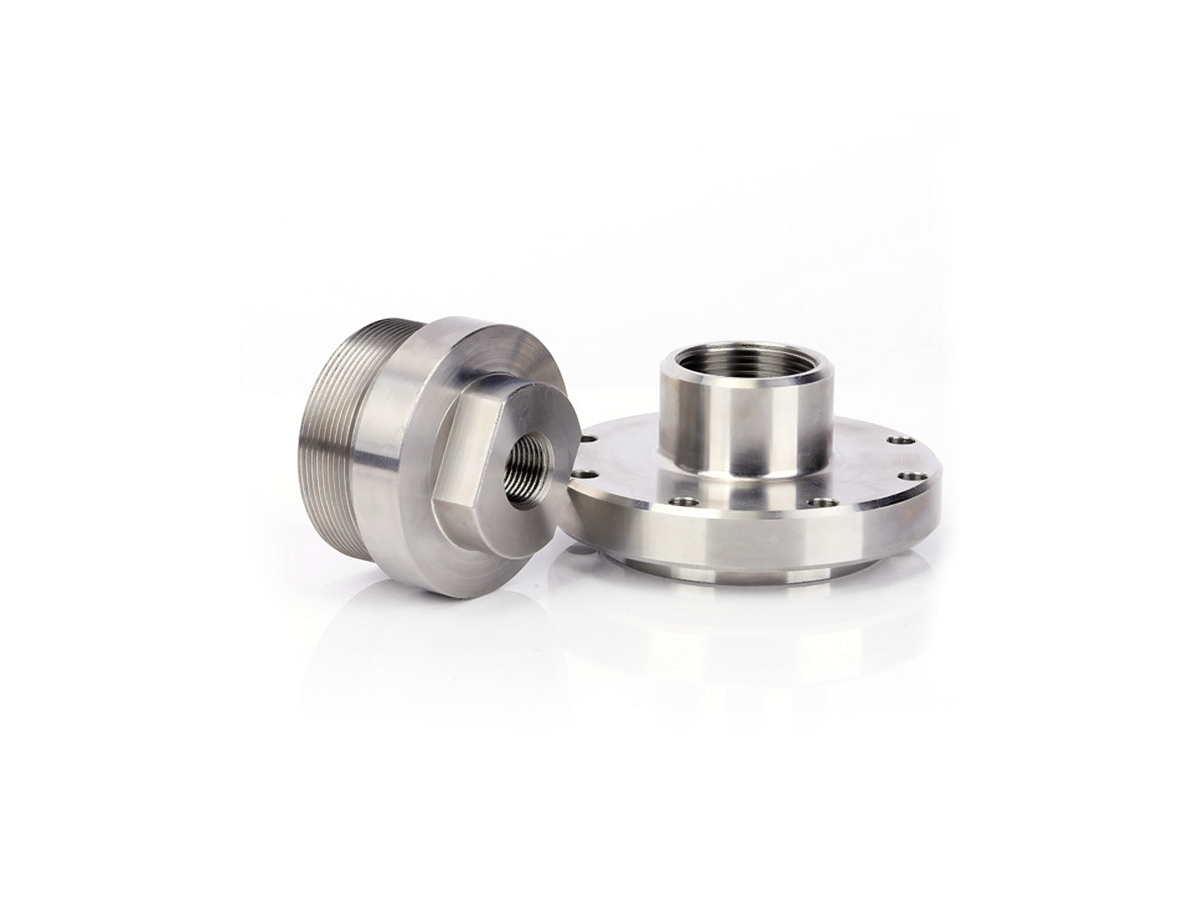Custom CNC Machining Services for Stainless Steel SUS304 in High-Quality Applications
Introduction to Custom CNC Machined SUS304 Stainless Steel in High-Quality Manufacturing
Industries such as medical equipment, food processing, and automotive require materials with excellent corrosion resistance, durability, and consistent mechanical properties. SUS304 stainless steel, known for its superior corrosion resistance, weldability, and robust mechanical strength, is highly favored for high-quality applications. It is particularly suitable for custom CNC machining of components such as valves, fittings, medical instruments, and precision hardware, where hygiene, durability, and precision are essential.
Utilizing advanced CNC machining, manufacturers precisely craft SUS304 stainless steel components, achieving intricate shapes, high dimensional accuracy, and exceptional surface finishes, significantly enhancing component reliability and performance.
Comprehensive Analysis of SUS304 Stainless Steel for Custom High-Quality Applications
Comparative Performance of SUS304 Stainless Steel and Similar Materials
Material | Tensile Strength (MPa) | Yield Strength (MPa) | Machinability | Typical Applications | Advantage |
|---|---|---|---|---|---|
515-720 | 205-515 | Good | Valves, medical instruments, fittings | Excellent corrosion resistance, weldability | |
620-750 | 240-450 | Excellent | Precision fittings, instrumentation | Superior machinability | |
515-620 | 205-310 | Moderate | Marine hardware, chemical processing equipment | Superior corrosion resistance | |
485-620 | 170-310 | Moderate | Surgical tools, medical implants | Excellent biocompatibility and corrosion resistance |
Strategic Material Selection for CNC Machined SUS304 Stainless Steel Components
Selecting SUS304 stainless steel for custom CNC machining involves evaluating corrosion resistance, machinability, and mechanical strength:
High-quality valves, fittings, and components for medical and food processing applications benefit from SUS304 stainless steel due to its outstanding corrosion resistance, mechanical strength (tensile strength of 515-720 MPa), and excellent weldability.
For precision instrumentation parts requiring improved machinability, SUS303 stainless steel may be preferred.
Components subjected to harsh marine or chemical environments that require higher corrosion resistance select SUS316 stainless steel.
Surgical and medical device applications requiring biocompatibility and extreme corrosion resistance typically use SUS316L stainless steel.
Precision CNC Machining Processes for SUS304 Stainless Steel Components
CNC Machining Process Performance Overview
CNC Machining Process | Dimensional Accuracy (mm) | Surface Roughness (Ra μm) | Typical Applications | Key Advantages |
|---|---|---|---|---|
±0.005-0.01 | 0.4-1.6 | Valves, fittings, cylindrical components | Precision rotational accuracy | |
±0.005-0.02 | 0.4-3.2 | Complex medical components, brackets | Versatile, intricate details | |
±0.01-0.02 | 1.6-3.2 | Mounting holes, precision fittings | Accurate hole alignment | |
±0.003-0.01 | 0.2-0.6 | High-complexity medical instruments, automotive parts | Exceptional precision |
Optimizing CNC Machining Processes for SUS304 Stainless Steel Components
Selecting suitable CNC machining processes for SUS304 stainless steel involves assessing complexity, dimensional requirements, and surface finishes:
Cylindrical components such as valves and precision fittings demanding rotational precision of ±0.005 mm and surface finishes of Ra ≤1.6 µm are best suited for CNC Turning Service.
Custom medical components, brackets, and complex hardware requiring detailed features with dimensional accuracy within ±0.005 mm benefit from CNC Milling Service.
Precision fittings and components that require accurately aligned and controlled-depth holes (±0.01 mm tolerance) are optimally produced via CNC Drilling Service.
Components with intricate geometries, precise contours, and tight dimensional tolerances (±0.003 mm) achieve superior results with Multi-Axis CNC Machining Service.
Advanced Surface Treatments to Optimize SUS304 Stainless Steel Components
Surface Treatment Performance and Suitability
Treatment Method | Corrosion Resistance | Wear Resistance | Industrial Suitability | Typical Applications | Key Features |
|---|---|---|---|---|---|
Excellent (>1000 hrs ASTM B117) | Moderate | Excellent | Medical fittings, valves, precision instruments | Enhanced surface purity and corrosion resistance | |
Outstanding (>1500 hrs ASTM B117) | Moderate | Excellent | Medical instruments, food equipment | Superior smoothness and corrosion resistance | |
Excellent (>1500 hrs ASTM B117) | Very High (HV1500-2500) | Excellent | High-wear precision components | High hardness and superior wear resistance | |
Good | Moderate | Good | Brackets, visible hardware | Consistent matte finish |
Strategic Surface Treatment Selection for CNC Machined SUS304 Stainless Steel
Optimal surface treatments are selected based on corrosion resistance requirements, surface durability, and aesthetic considerations:
Medical fittings, valves, and food processing equipment frequently undergo Passivation for superior corrosion resistance and purity of the surface layer.
Precision components in medical and food industries demanding exceptional surface smoothness, hygiene, and corrosion resistance greatly benefit from Electropolishing.
Components subjected to abrasive wear or high mechanical stress use PVD Coating for significantly enhanced hardness (1500-2500 HV) and corrosion resistance.
Brackets, hardware, or visually exposed fittings requiring a uniform matte appearance select Sandblasting to achieve consistent aesthetics.
Rigorous Quality Assurance for CNC Machined SUS304 Stainless Steel Parts
Detailed Quality Control Practices
Quality control practices for CNC machined SUS304 stainless steel parts include:
Dimensional Inspection: Coordinate Measuring Machines (CMM) ensure accuracy within specified tolerances (±0.003 mm to ±0.01 mm).
Surface Finish Testing: Profilometers confirm that Ra values meet the specified standards (0.2-3.2 µm).
Mechanical Property Testing: Tensile strength, yield strength, and hardness tests (ASTM E8) validate material properties and performance.
Corrosion Resistance Testing: ASTM B117 salt spray testing to verify corrosion resistance exceeding 1000 hours.
Non-Destructive Testing (NDT): Ultrasonic, radiographic, and magnetic particle inspections identify potential internal defects and ensure part integrity.
Comprehensive Documentation: ISO 9001-compliant documentation ensures complete traceability and quality compliance.
Key Applications of CNC Machined SUS304 Stainless Steel Components
Medical and surgical instruments.
Food processing valves and fittings.
Automotive precision components.
High-quality instrumentation fittings.
Related FAQs:
Why is SUS304 stainless steel ideal for high-quality CNC machined components?
What CNC machining processes provide optimal results with SUS304 stainless steel?
Which surface treatments effectively enhance SUS304 stainless steel components?
How does CNC machining ensure dimensional accuracy for SUS304 stainless steel parts?
What industries primarily use CNC machined SUS304 stainless steel components?

